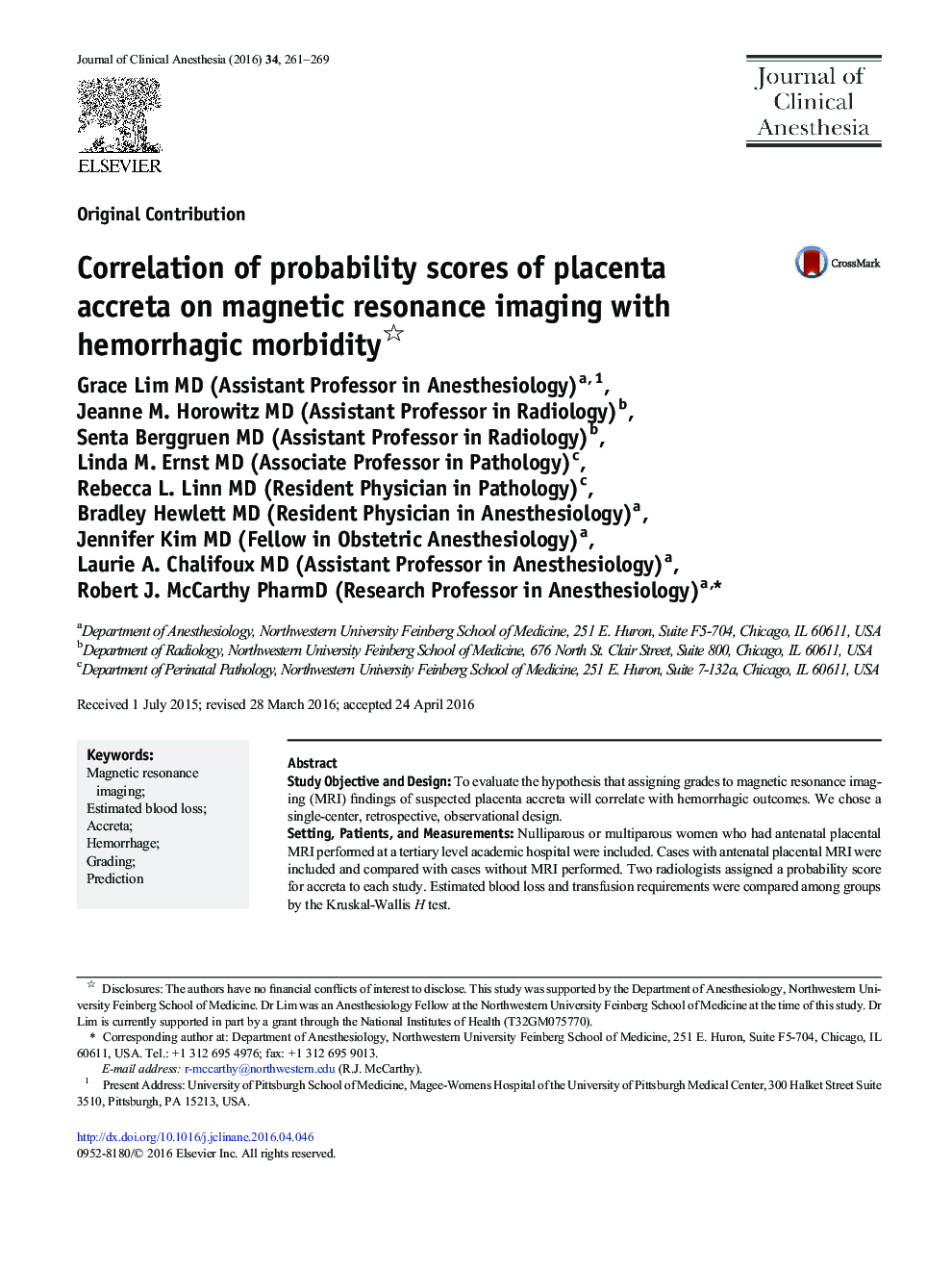| Article ID | Journal | Published Year | Pages | File Type |
|---|---|---|---|---|
| 5884524 | Journal of Clinical Anesthesia | 2016 | 9 Pages |
â¢We devise a grading system for placenta accreta on MRI.â¢We examined this grading system against severity of postpartum hemorrhage.â¢Placental MRI grades do not correlate with postpartum hemorrhage severity.
Study Objective and DesignTo evaluate the hypothesis that assigning grades to magnetic resonance imaging (MRI) findings of suspected placenta accreta will correlate with hemorrhagic outcomes. We chose a single-center, retrospective, observational design.Setting, Patients, and MeasurementsNulliparous or multiparous women who had antenatal placental MRI performed at a tertiary level academic hospital were included. Cases with antenatal placental MRI were included and compared with cases without MRI performed. Two radiologists assigned a probability score for accreta to each study. Estimated blood loss and transfusion requirements were compared among groups by the Kruskal-Wallis H test.ResultsThirty-five cases had placental MRI performed. MRI performance was associated with higher blood loss compared with the non-MRI group (2600 [1400-4500]Â mL vs 900Â [600-1500]Â mL, PÂ <Â .001). There was no difference in estimated blood loss (PÂ =Â .31) or transfusion (PÂ =Â .57) among the MRI probability groups.ConclusionsIn cases of suspected placenta accreta, probability scores for antenatal placental MRI may not be associated with increasing degrees of hemorrhage. Continued research is warranted to determine the effectiveness of assigning probability scores for antenatal accreta imaging studies, combined with clinical indices of suspicion, in assisting with antenatal multidisciplinary team planning for operative management of this morbid condition.
